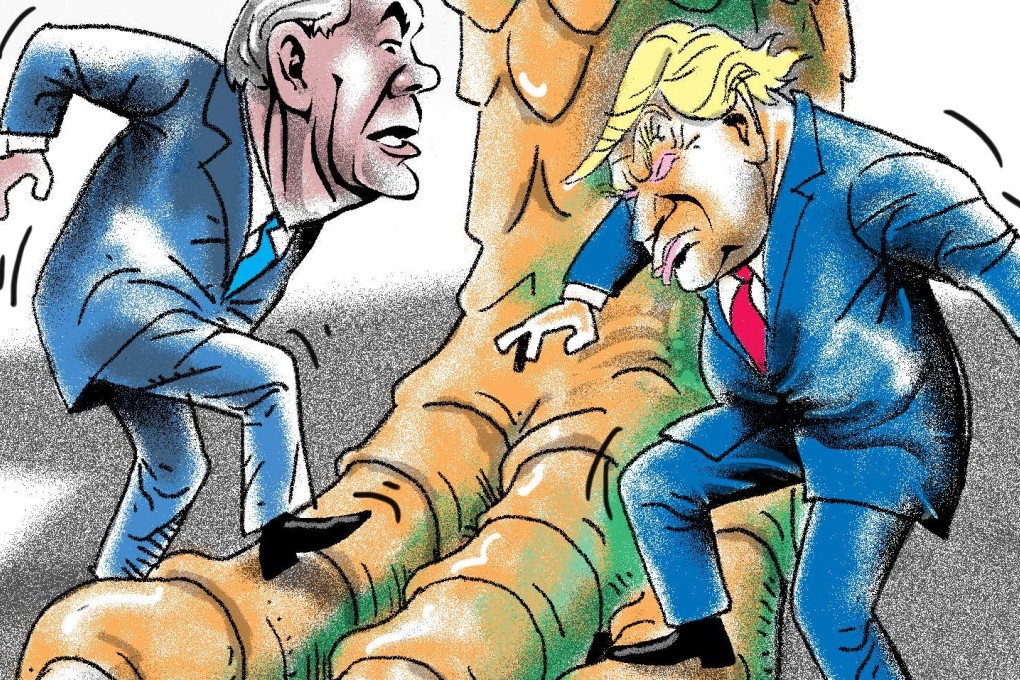With their threats to China, Trump and Tillerson are making rookie blunders that will only hurt US credibility
Hugh White says their ill-considered words over the South China Sea and ‘one China’ policy, which underline how little they understand China, will most probably reveal themselves to be empty threats


On Trump’s foreign policy, let common sense prevail
But that doesn’t mean his ill-considered words don’t have serious consequences. They have certainly damaged his credibility. He might have been a very effective businessman, but it is hard to take seriously someone who, as the new administration’s nominee for secretary of state, presents himself to the Senate confirmation hearing so poorly prepared to discuss the most sensitive issue in the most important and difficult bilateral relationship that America has today.
And by damaging his own credibility, his effectiveness in that office, if he is confirmed, will also be undermined.
Watch: Rex Tillerson wants to deny China access to South China Sea islands
Both men overestimate US power and underestimate China’s. And they underestimate China’s resolve
So there is a real problem here, and not just for Washington. The foolish threats made by Trump and Tillerson will make it much harder for them to handle relations with China. They make it harder to strike the right balance between firmness and accommodation, which will be needed if America is to constrain China’s growing power and ambition without risking a disastrous conflict.
They increase the danger that, over the coming years, America will find itself facing an impossible choice between going to war with China or abandoning any serious strategic role in Asia. It is easy to assume from the tough tone of Trump’s and Tillerson’s threats that, faced with such a choice, they would opt for war.
But, in fact, they are far more likely to back off in the face of a real risk of war with China, thus weakening America’s position in Asia, and strengthening China’s.
Either way, the consequences of these rookie blunders are very serious indeed for all of us in Asia, as well as for America.